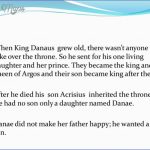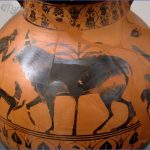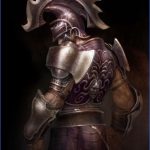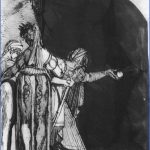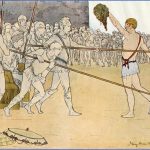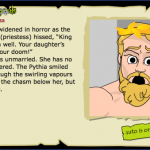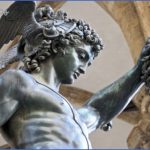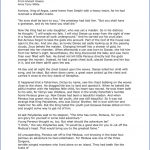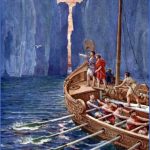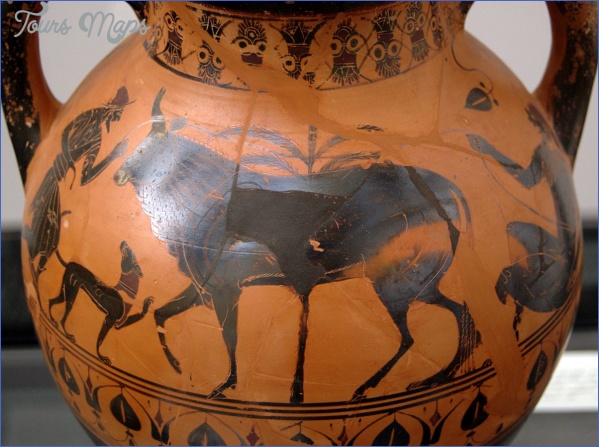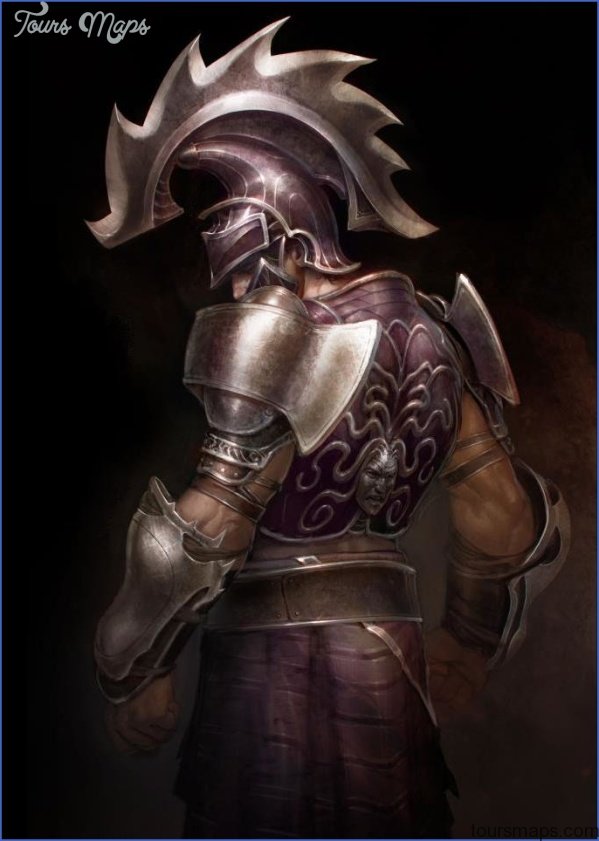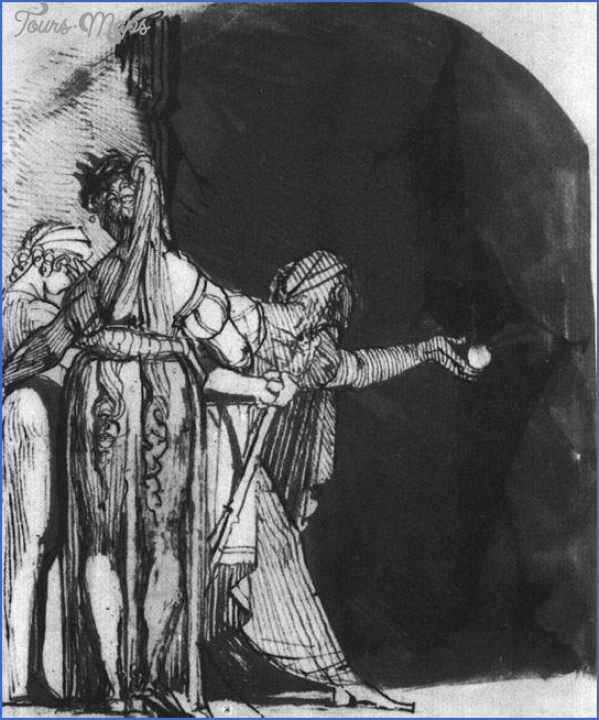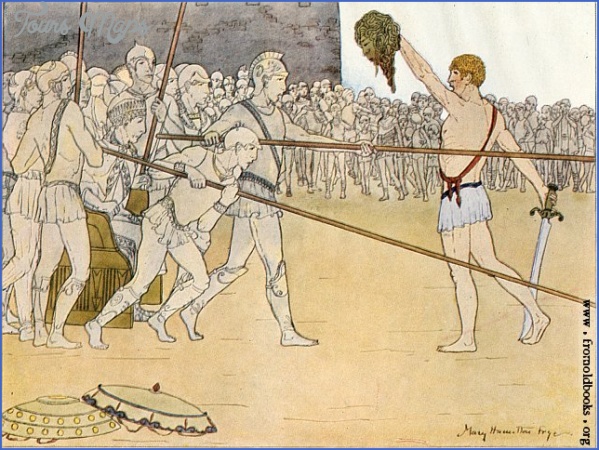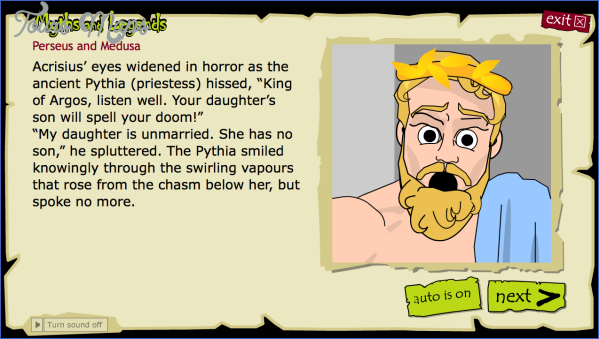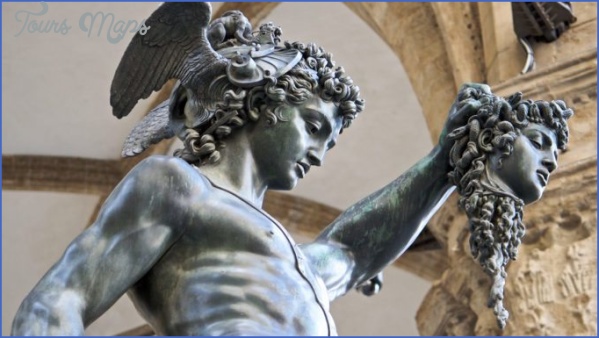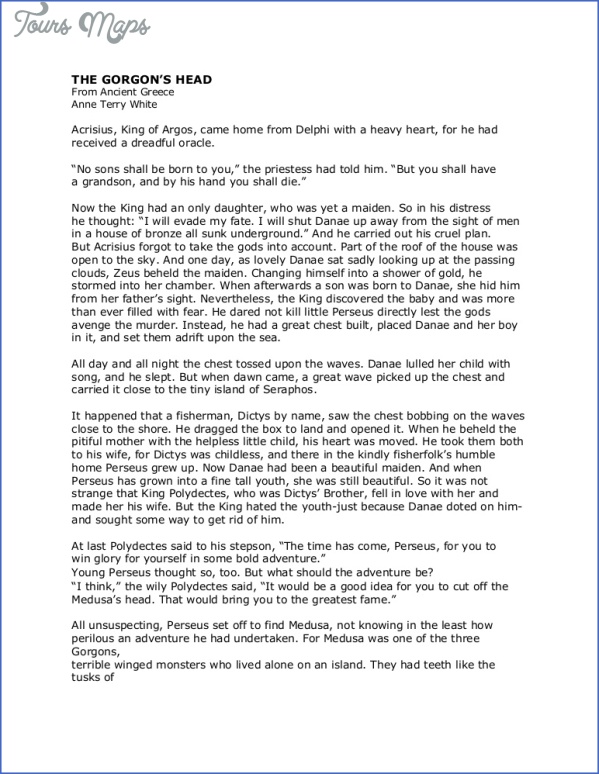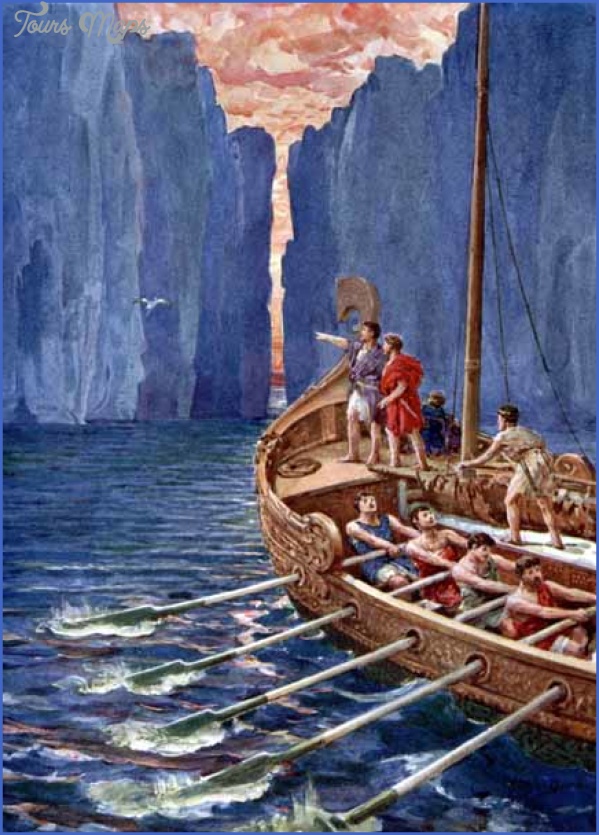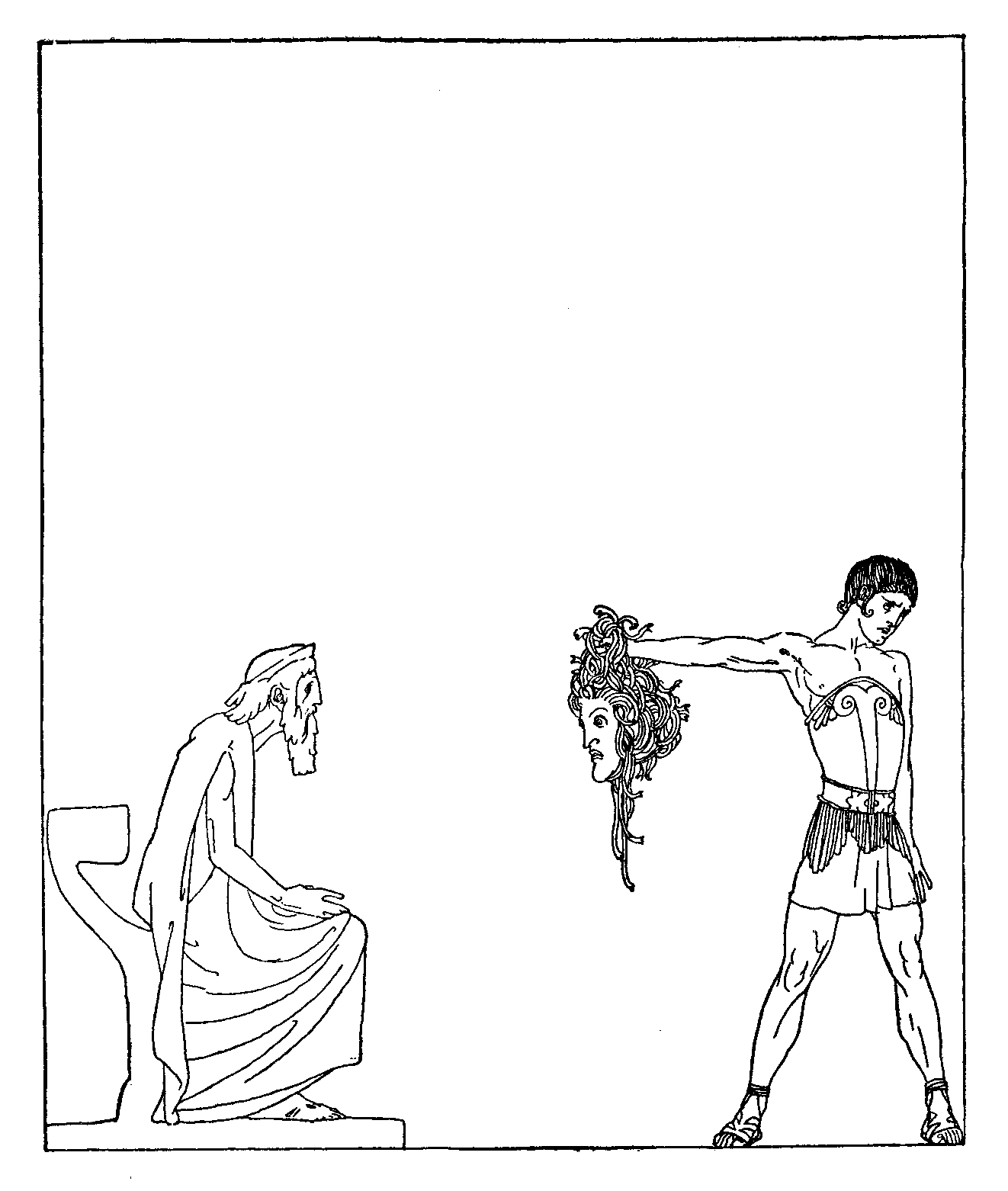Lynceus and Hypermnestra’s grandson also feared death at a family member’s hands. Acrisius, king of Argos, received notice from the Delphic oracle that his daughter’s son would kill him His only daughter Danae was childless, so, to prevent her conceiving, Acrisius imprisoned her in a bronze-walled cell with just one window. This window was the king’s undoing. Through it Zeus glimpsed Danae and poured into the prison as a shower of golden rain, whose heavenly moisture impregnated her. Her resultant son was Perseus.
Refusing to believe Danae, but reluctant to kill her, Acrisius locked her and her baby in a wooden chest, which he cast into the waves. The currents bore this latest in a line of refugees to Seriphos. There they were found by a fisherman, Dictys (‘Net’), who brought up Perseus as his own. After some years, Dictys’ brother, King Polydectes, became infatuated with Danae – and to help achieve his desired ends, he plotted to do away with Perseus. As a ruse he announced his intention to woo Hippodameia, princess of Elis, and demanded from the great and good of Seriphos that each should contribute a horse as a courtship-gift. Perseus had neither horse nor the money to buy one. So he asked Polydectes to demand from him another levy. The trap was sprung. Smirking, Polydectes demanded: ‘Bring me the head of the Gorgon, Medusa’.
Perseus & Medusa
There were three Gorgons, terrifying winged sisters, who lived far to the west beyond the bounds of Ocean. With grotesquely large heads, boar’s-tusk teeth and lolling tongues, their hair was a nest of writhing snakes. One look at them and anything living was turned to stone. Hesiod describes how:
‘Two snakes, heads bent forwards, hung suspended from their belts. Their tongues were flickering, their sharp teeth grinding in their rage, and their eyes were wildly glaring. And Terror quaked above their terrifying heads.’ Two were immortal, but not the third, Medusa, and it was her head that Polydectes demanded. In fact, his choice was irrelevant: everyone knew that Perseus would never return.
When Athene found out about the quest, however, she resolved to help Perseus. First she persuaded the gods to provide him with equipment necessary to achieve his task: Hermes gave winged sandals; Zeus an adamantine sickle; Haides a dog-skin-covered helmet that made its wearer invisible; Athene herself a polished shield. But Perseus still needed one more item – a kibisis, an insulated bag, in which to store the Gorgon’s head and prevent its venomous power from leaking out. This he must acquire in person from the Hesperides, whose home was far to the west in the realm of the setting sun.
Perseus, Prince of Argos Photo Gallery
To discover how to reach this land, Perseus first visited the Graeae. Like the Gorgons, they were Phorcys’ daughters, and they, too, were grotesque. Aeschylus calls them ‘three girls, but ancient, shaped like swans, with only one eye between them and one tooth. The sun with his rays does not shine down on them, nor the moon by night. ’
Only by tricking them and seizing their one eye as they passed it between them in their gnarled hands was Perseus able to discover the information he needed. Quickly he set out, racing to the west, and in their golden orchard the Hesperides graciously gave him the kibisis. Then borne aloft by Hermes’ winged sandals, he flew on to the Gorgons’ lair.
Encouraged by Athene, Perseus lops off the head of Medusa, who clutches Pegasus, born at the moment of her death, on a metope from the c. 550 BC Temple ‘C’ at Selinunte, Sicily.
As he drew near, Perseus lowered Haides’ helmet over his head. Now invisible, he unsheathed his sickle and stealthily approached, holding Athene’s shield obliquely before him – for he knew that while he could not so much as glimpse the Gorgons with his naked eye, their reflection in the shield could do no harm. At last, with the serpents hissing round him, he came close enough to strike, and in an instant had lopped off Medusa’s head. Hurriedly stowing it in the kibisis, he leapt into the air, triumphant. Hesiod imagines the scene depicted on a shield:
He soared as swiftly as a thought. At his back was the head of the terrifying beast, the Gorgon, wrapped in its kibisis, miraculous to see. Like a man who runs in haste or horror, Perseus, the son of Danae, raced at full stretch; and behind him raced in hot pursuit the Gorgons, unspeakable, whom no man might approach, stretching out their hands to grab him
The Gorgons were fast, but Perseus was faster, and soon he was alone, skimming the waves towards the sunrise and the east.
Maybe You Like Them Too
- Theseus & Peirithous
- The Voyage of the Argo Begins
- Minos, his Loves & his Family
- The Centaurs
- Athens in History & Today

